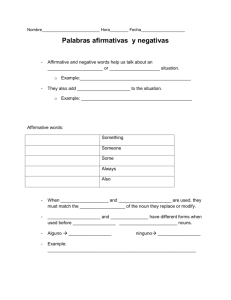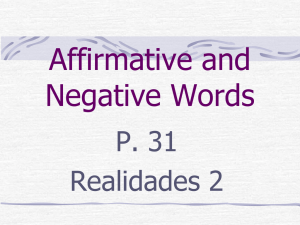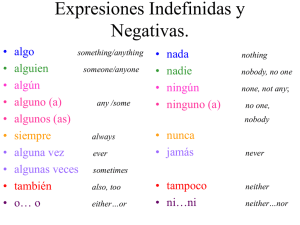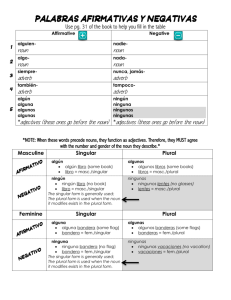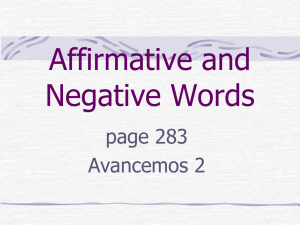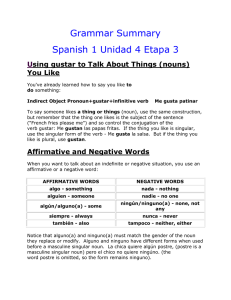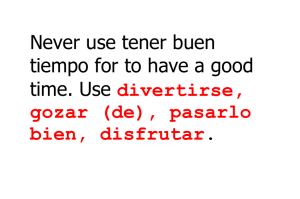Nombre_______________________ Fecha ________________________ Esp. 2 – Cap. 1A
advertisement
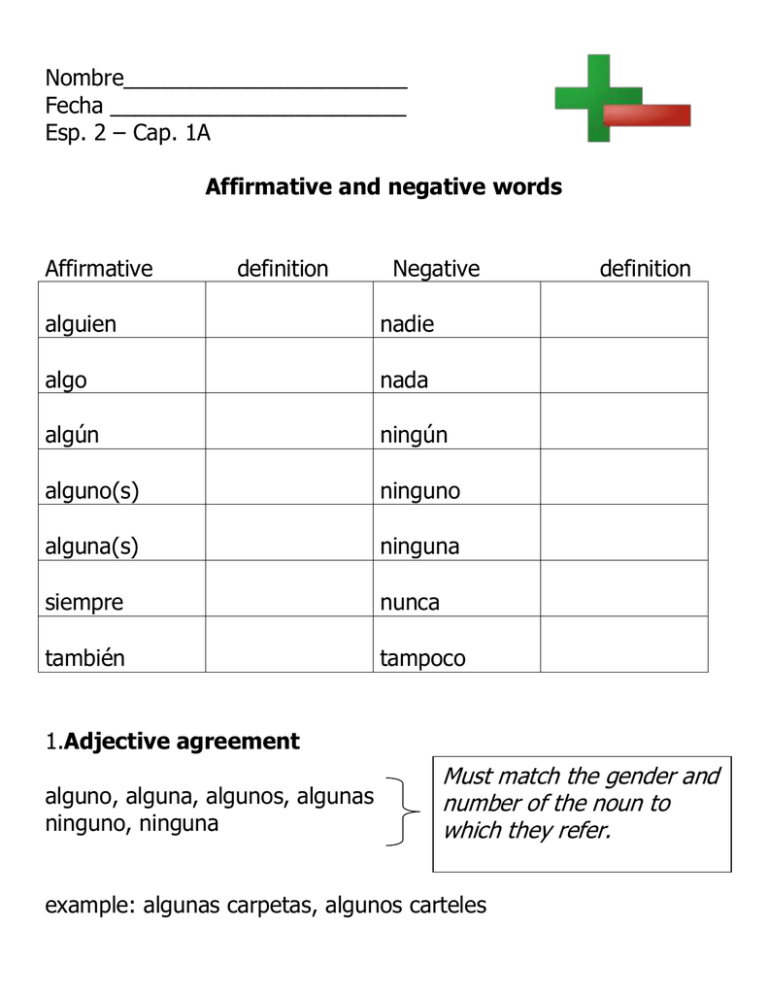
Nombre_______________________ Fecha ________________________ Esp. 2 – Cap. 1A Affirmative and negative words Affirmative definition Negative alguien nadie algo nada algún ningún alguno(s) ninguno alguna(s) ninguna siempre nunca también tampoco definition 1.Adjective agreement alguno, alguna, algunos, algunas ninguno, ninguna Must match the gender and number of the noun to which they refer. example: algunas carpetas, algunos carteles 2. Masculine singular nouns When alguno and ninguno come before a masculine singular noun, they change to: algún and ningún This is the same thing that we do with un and una. We don’t use uno; we change uno to un before a masculine singular noun. You will do the same with alguno and ninguno before a masculine singular noun. ex. algún cartel ningún cartel 3. Making sentences negative When you make a sentence negative place no before the verb. Ex. No estudiamos el sábado por la noche. You may also use a negative word after the verb. Ex. No estudiamos nunca el sábado por la noche. 4. Double negatives Remember, in English we do not use double negatives. This rule does not apply to Spanish. No, no vamos al laboratorio en ninguna clase. Literal translation: No, we don’t go to the laboratory in none class. In English, we would translate this to: No, We don’t go to the lab in any of our classes. 5. Ningún/Ninguna When these forms are used, the speaker is noting that “none/not any” is present. In Spanish, if there isn’t any of the “noun” being discussed, the singular form should be used. This is different than English. Ex. I don’t want any cookies. No quiero ninguna galleta. We don’t have any staplers. No tenemos ninguna grapadora. He doesn’t have any shoes. Él no tiene ningún zapato. 6. Ninguno/Alguno These forms still follow adjective agreement, but they are only used when NOT followed by a noun. Ex. - ¿Tienes los papeles? - No. No tengo ninguno. -¿Quieres algún postre? - Sí, quiero alguno.

